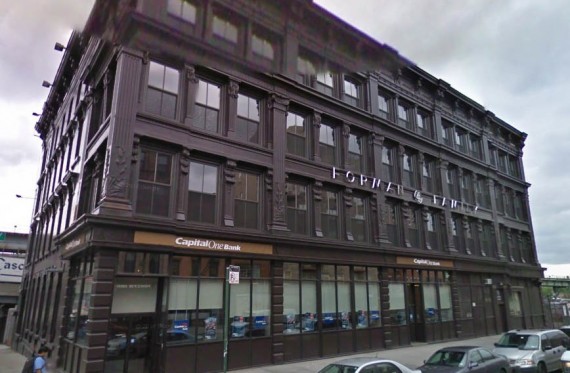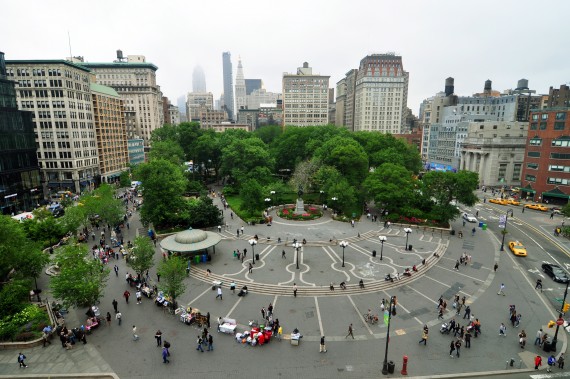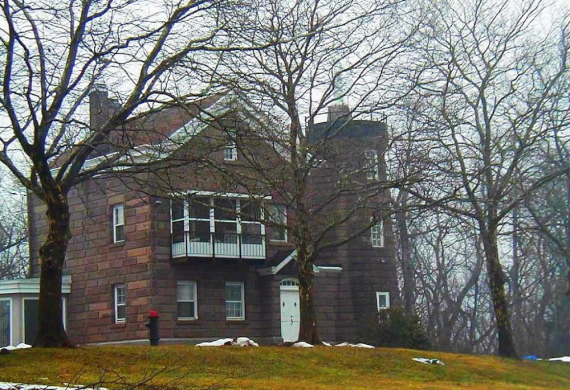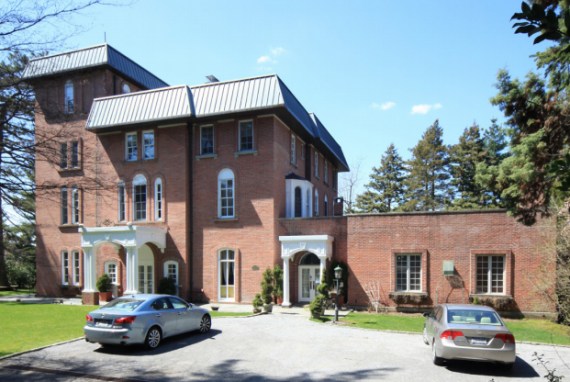New York, a city packed with landmarks, might soon have a few more official sites to add to the list.
The city’s Landmarks Preservation Commission will meet today to decide the fate of 95 properties throughout the city that are being considered for preservation.
“When there are roughly 36,000 landmarks in the city, a fight over 95 may seem kind of frivolous,” The New York Times’ Matt Chaban told the paper.
“But this group has taken on huge significance because it’s seen as a bellwether for how seriously the de Blasio administration is considering issues of preservation versus development.”
Here is a selection of some of the historic houses, buildings, parks and churches under consideration:

The Pepsi-Cola sign in Gantry Plaza State Park in Long Island City
Pepsi-Cola sign, Long Island City
The 120-foot long, 60-foot high neon sign bearing a classic Pepsi-Cola logo once sat atop the Pepsi bottling plant which occupied the northern section of what became Gantry Plaza State Park. Since 2009, the sign, constructed by Artkraft Strauss in 1936, has occupied its current location, near ground level within the park.

183-195 Broadway in Williamsburg
183-195 Broadway, Williamsburg
This 1880s-era, cast-iron-adorned building was built as a shoe factory for the James R. Sparrow Company. It also housed an appliance manufacturing facility run by Forman 4 Family, which eventually converted part of the 42,000-square-foot structure to apartments.

Union Square (credit: chensiyuan)
Union Square Park, Greenwich Village
Union Square, which marks the Village’s northern boundary, was marked out for the first time in 1815, and grew into something resembling its modern form in the first half of the 19th Century. Various distinctive features, such as the park’s fountain, were added over the years. The area’s name, somewhat mundanely, stems the fact that it marked the “union” of Manhattan’s then-two largest streets.

Prince’s Bay Light on Staten Island
Prince’s Bay Light, Pleasant Plains
This 60-foot lighthouse, situated on the highest point on the southern shore of Staten Island, was built in 1864 with $30,000 in federal funding. The attached brownstone cottage, where the lighthouse keeper lived, was built in 1868. The beacon was deactivated in 1922. Back in 1999, New York State and the Trust for Public land bought the lighthouse from the Archdiocese of New York.

The Samuel D. Babcock House in Riverdale
Samuel D. Babcock House, North Riverdale
This 9,500-square-foot estate at 5525 Independance Avenue in the Bronx – also known as Hillside – was built in 1860, one of the first riverfront estates that gave Riverdale its name. It was once the home of the National Bureau of Economic Research. In 1954, the original estate was subdivided in 1954, and the house was absorbed by a private community.
– Ariel Stulberg
